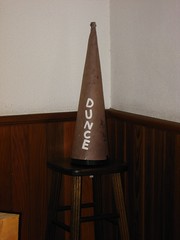 No one wants to make a foolish mistake in front of other people. This is especially true when the mistake could end up costing you millions of dollars. When someone decides to sell their company, the last thing they want to see is the new owner re-selling it for a much higher price. One way to prevent this problem is to engage in a practice that has been called “schmuck insurance”.
No one wants to make a foolish mistake in front of other people. This is especially true when the mistake could end up costing you millions of dollars. When someone decides to sell their company, the last thing they want to see is the new owner re-selling it for a much higher price. One way to prevent this problem is to engage in a practice that has been called “schmuck insurance”.
Technically speaking, “schmuck insurance” isn’t really a form of insurance at all. Instead, it is an action that the owner of a company can do in order to prevent making a stupid mistake when he sells off a portion of his company to another person or corporation.
The word “schmuck” is Yiddish, and it translates to something like “idiot” in English, (if we choose to ignore the more vulgar meanings that this word could translate to). A business owner can take an action that has been referred to as “schmuck insurance” as a way to prevent financial loss, and loss of status.
“Schmuck insurance” is a way to prevent yourself from looking like a complete idiot if the company you just sold suddenly becomes successful and profitable under the new owner. It is also a phrase that can imply that the seller is aware of the possibility of having that happen, and has taken actions that would allow him to benefit from that profit, too.
It works very simply. A business owner notices that his company, (or a portion of his company), isn’t making anywhere near as much profit as hoped. The owner of Company A implements changes that are designed to make Company A more profitable. When these changes don’t have the impact that they were supposed to, the owner decides that it isn’t worth it to continue to put effort and money into keeping Company A going.
The owner decides to sell Company A. The owner of Company B decides to purchase it, because she thinks that she has ideas that will cause Company A to become very profitable for her. If she can do that, then the current owner of Company A is going to feel very foolish for failing to make his company profitable.
So, instead of selling 100% of Company A to the owner of Company B, he hangs on to 10% of it, or maybe 20% of it. Now, if Company B is able to make a big profit, the original owner of Company A will be earning some profit as well. He will not look like an idiot for selling his company.
Image by Candie_N on Flickr

